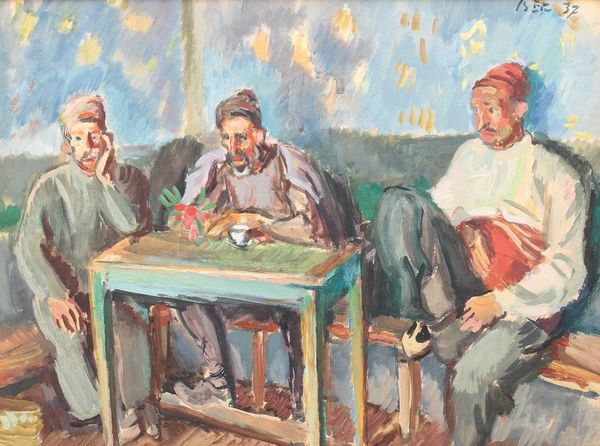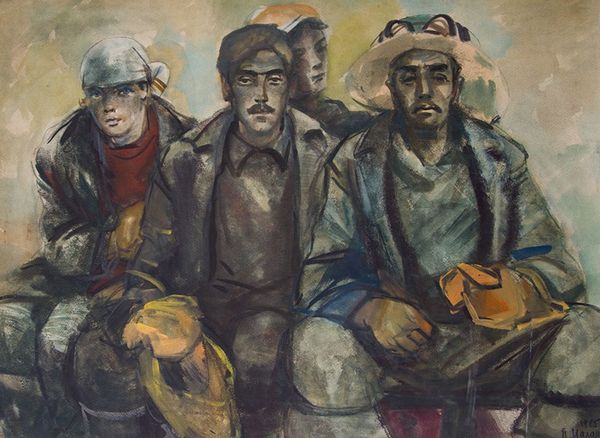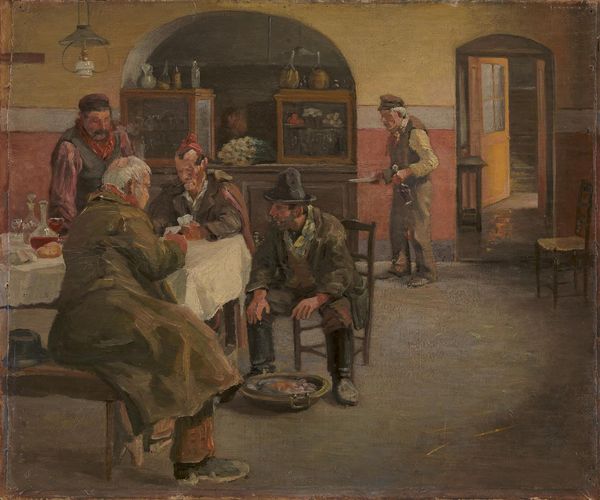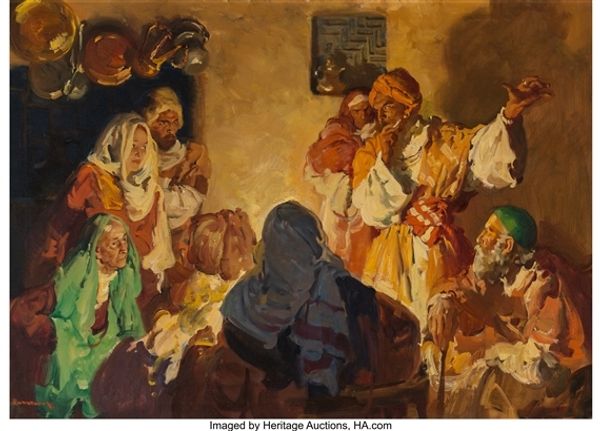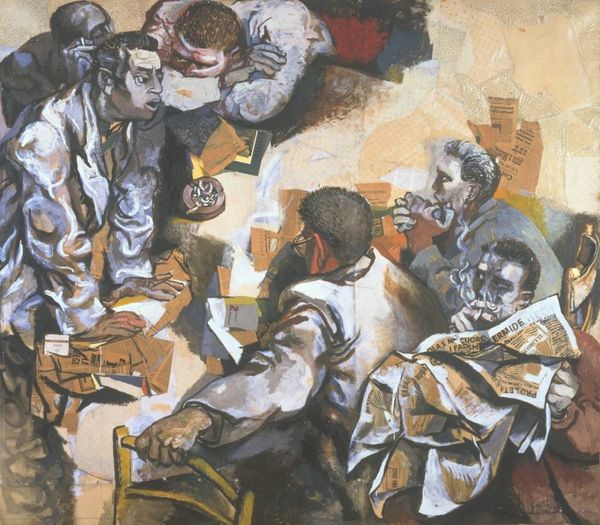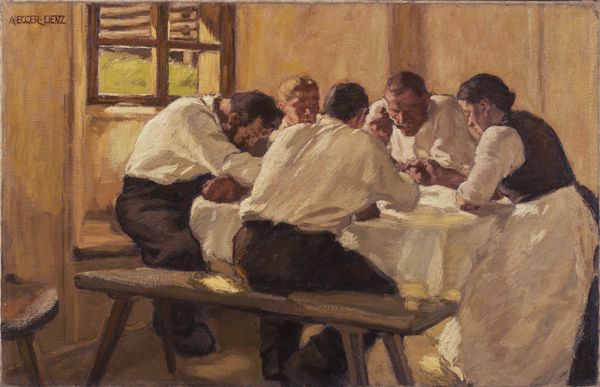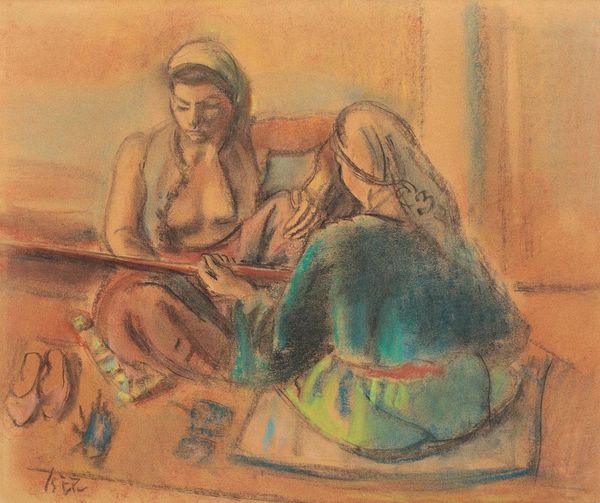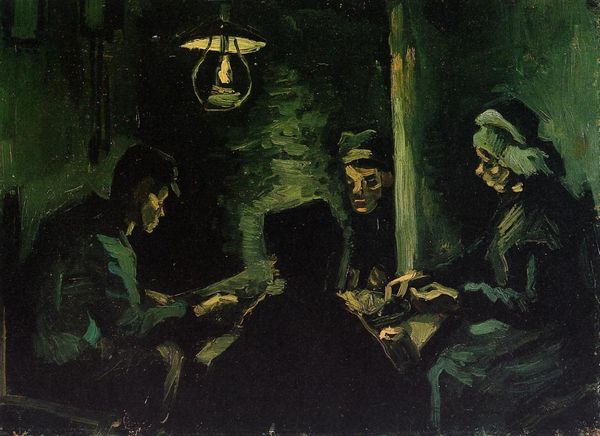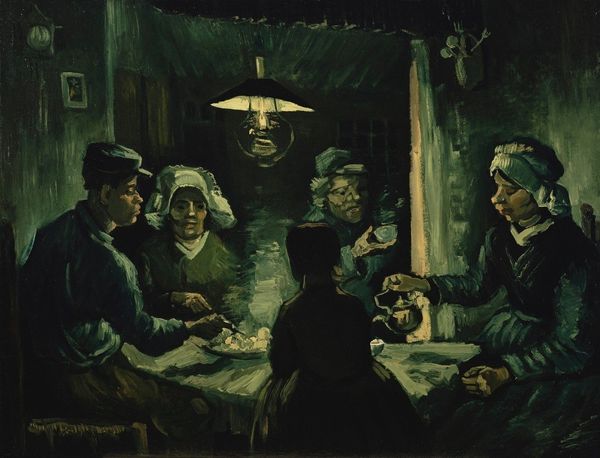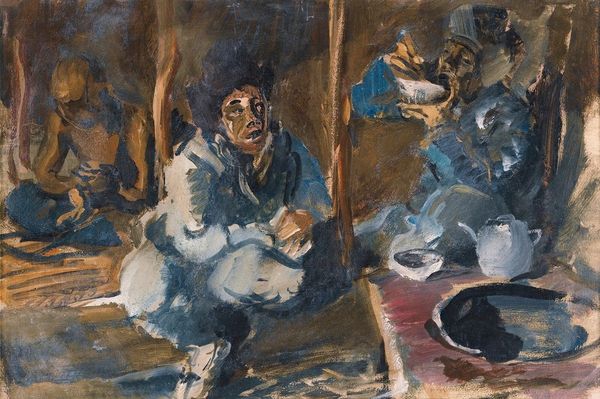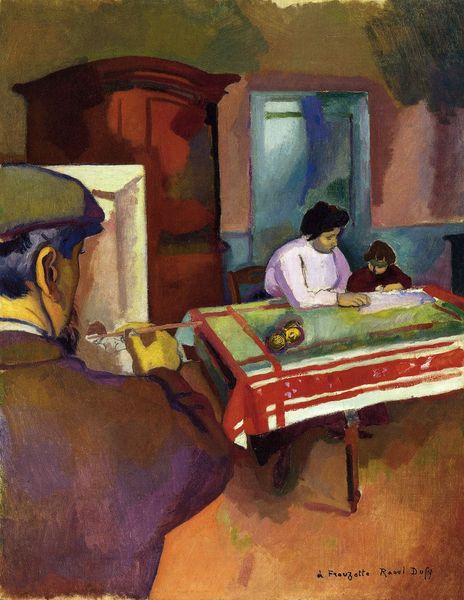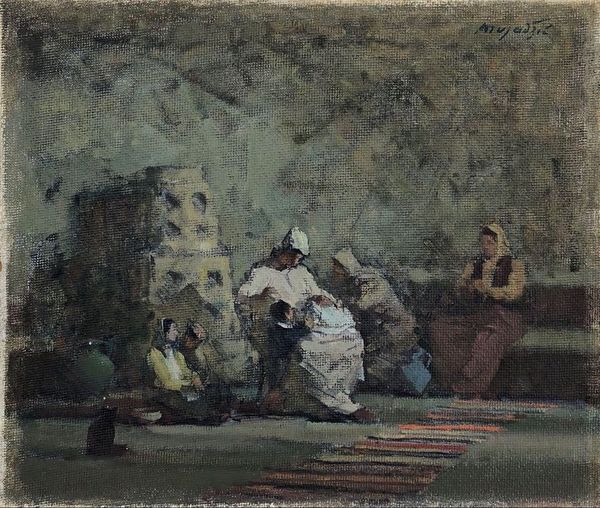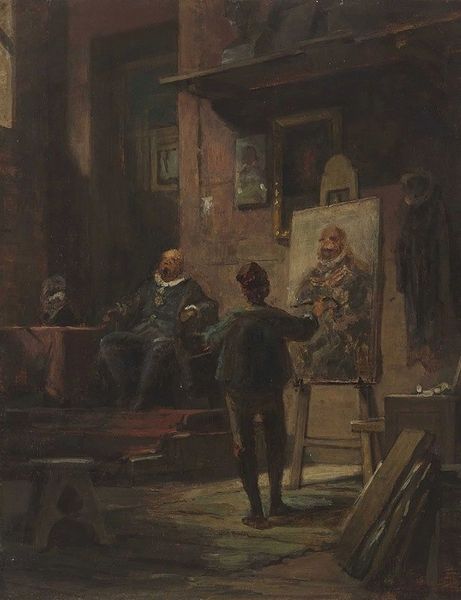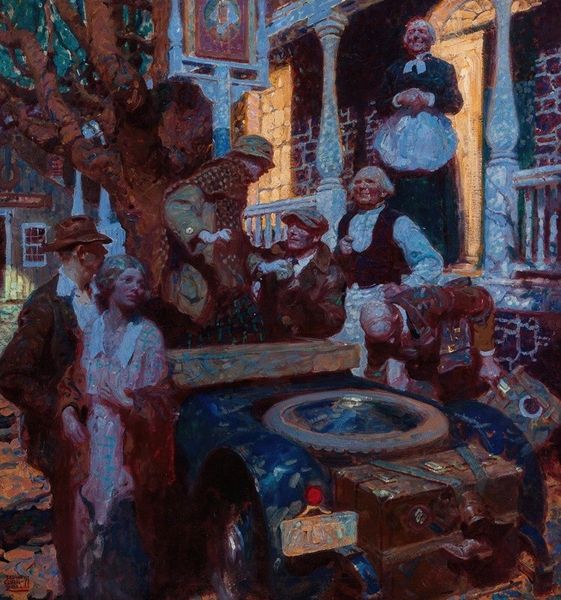
painting, oil-paint
#
portrait
#
painting
#
oil-paint
#
figuration
#
oil painting
#
genre-painting
Copyright: George Pemba,Fair Use
Curator: This is George Pemba's 1952 oil on canvas, "The Prodigal Son." Editor: My immediate reaction is one of familial tension and suppressed emotion. There’s a claustrophobic feeling intensified by the tight composition, although light from the window is focused on the central figure who's doing the talking. Curator: It's insightful to consider that tension within its social climate. Pemba, a Black artist working in apartheid South Africa, used genre paintings to explore narratives of identity and social injustice, representing ordinary people within domestic spaces. Editor: Yes, knowing that Pemba lived and worked under apartheid deepens my reading. It’s interesting to see the role of faith that must have been critical during times of repression, to view the young man from an intersectional lens— class, race, age, gender… it all feels like its bubbling under the surface of this strained exchange. Curator: Absolutely. We can analyze how "prodigal son" narratives resonate through the dynamics of patriarchy, religious morality, and racial identity during the apartheid era, particularly as Pemba uses flattened perspectives, interior settings, and figures of emotive strength in ordinary situations to reflect South Africa’s lived reality for Black families. This piece almost presents a direct intersection between private morality, societal expectation, and familial obligation in a single captured moment. Editor: Looking at this today, "The Prodigal Son" raises significant questions about redemption and reconciliation – ideas central to faith and the struggle for civil rights worldwide, don't you think? This piece seems to want a space to consider historical and cultural significance within religious art traditions but to challenge these too. Curator: That is to say, what emerges here is the historical context combined with personal story–making for an extremely moving observation on human drama. It's precisely those threads—history and humanity—that weave the potent complexities in Pemba's paintings. Editor: And leave us wrestling still, across time and space.
Comments
No comments
Be the first to comment and join the conversation on the ultimate creative platform.
